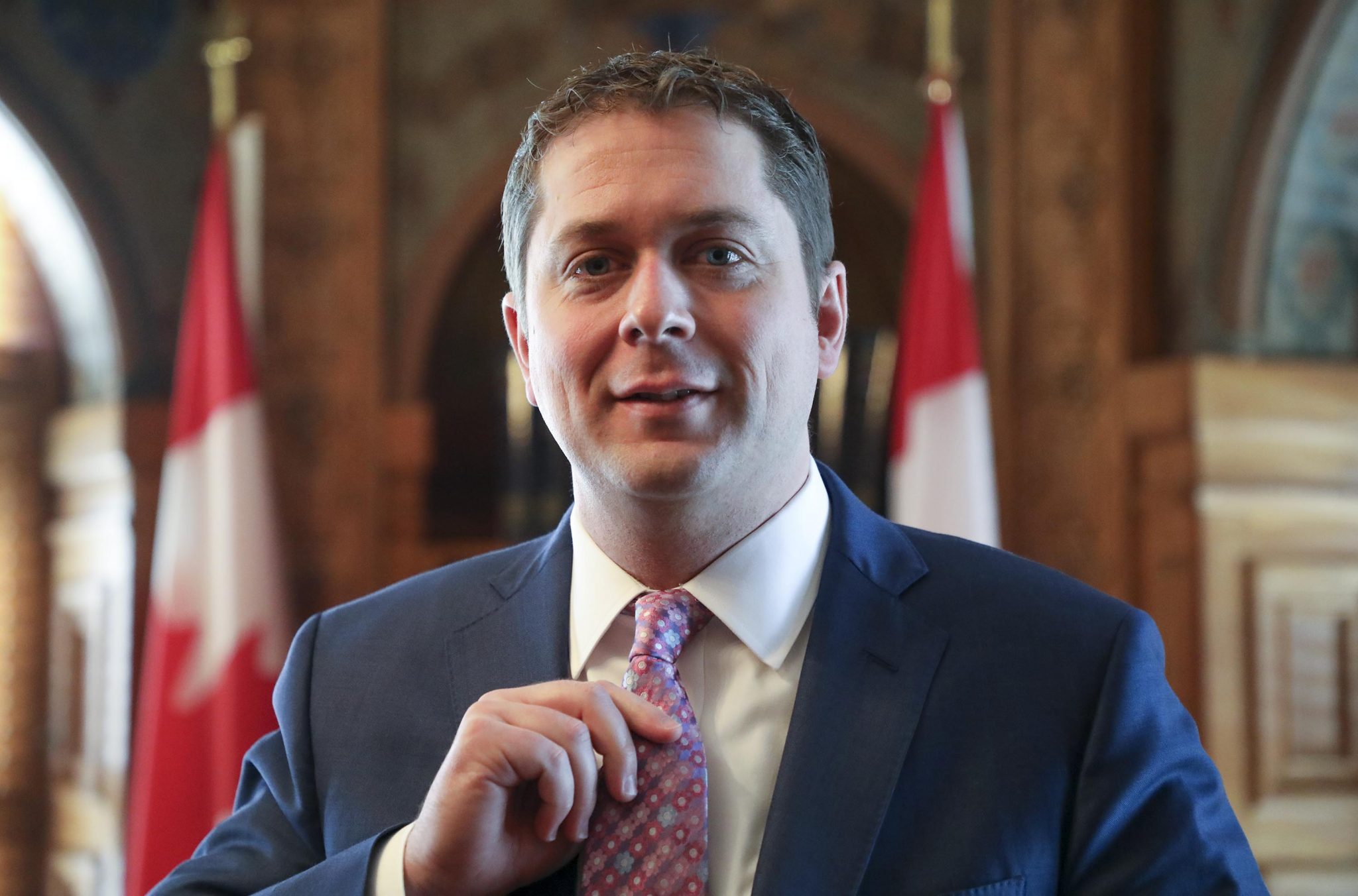Debunking the "Criminal Immigrant" Argument
Myth: Immigrants Bring Crime to Canada
While some people welcome immigrants with open arms, others aren’t as warm. Since Canada first opened its doors to newcomers decades ago, the unfounded notion that immigrants bring crime into the country has taken root in the minds of many citizens.
With this idea comes backlash, rejection, prejudice, and fear-mongering, which are often used to benefit politicians’ arguments rather than the public safety they claim to be so concerned about. There is a looming stigma about the unknown, about the idea of a foreign being entering our niche, but it’s just that – a stigma, not a fact.
So what exactly are the facts about immigration and crime?
The International Centre for Criminal Law Reform and Criminal Justice Policy openly states that immigrants are “much less involved in criminal activity than are those who were born in Canada.” Furthermore, immigrants, specifically in Canada, actually have a lower crime rate than the rest of the Canadian-born population.
Research done in recent years suggests we are actually lowering the crime rate by welcoming newcomers into the country. Studies conducted in the United States suggest the same.
And since the 1970s, the overall crime rate in Canada has dropped significantly, in an almost inverse relationship to increasing immigration. It’s also safe to say that the surge of newcomers to Canada is correlated to a reduced crime rate in our county—but correlation does not mean causation.
Refugees seeking asylum and immigrants looking to start their lives in Canada pose very little risk to Canada’s security and sovereignty. They arrive to Canada in hopes of finding security for themselves and their families. Seeking protection from atrocities and hardship experienced by the threats from their homeland, it is a highly unfounded and nonevidential statement to suggest they are responsible for crime in our country.
What’s more, the extensive security screenings refugees and immigrants alike undergo means that it’s highly unlikely any criminal elements would slip through.
It’s unfair to paint all immigrants as a potential threat. We’ve steadily increased our immigration rate not only due to the economical and sociological benefits it means for our country, but to fulfill our national obligation to extend a helping hand to those in need during their most vulnerable times.
Yes, Immigration Supports the Economy—Ask the Winnipeg Jets
Manitoba’s Provincial Nominee Program a Model For Economic Growth in Canada
Immigration supports economic growth—we’ve discussed this before in past posts and articles. Still, it’s one thing to discuss the theory behind economic immigration and another to showcase the benefits.
Thankfully, a recent op-ed by Kareem El-Assal from the Conference Board of Canada gives us an opportunity to take a closer look at how immigration can help turn around local economies.
And best of all, we get to do this by talking about a beloved Canadian institution: hockey.
Struggling Economy, Struggling Hockey Team
Back in 1996, facing serious financial challenges, the Winnipeg Jets left Winnipeg for Phoenix, Arizona. For years, the sports club had been struggling with cash flow and revenue. In November of 1991, local business leaders and the municipal and provincial government created a fund from which the team could withdraw money for management funds, which gave renewed life to the club.
What’s more, the team came to an agreement with the city of Winnipeg and its taxpayers, who created a public corporation that owned 36% of the team. This public corporation funded the team’s operating losses to help the Jets through these troubling times.
Sadly, it didn't last.
A lockout soon cut the 1994-1995 season short. Meanwhile, the struggling Canadian dollar (worth only $0.72 USD at the time) took a toll amidst rising salaries for players. The writing was on the wall, and the Jets soon left to become the Phoenix Coyotes.
This was a huge loss for Winnipeg, not only in terms of economic potential but in local identity and pride. The Jets had been a team and local fixture since 1972, and their loss hit the city hard.
But there was some good news: this loss got local business leaders thinking.
Manitoba's Innovative PNP Model
As Kareem El-Assal writes in his piece for the Conference Board, the loss of the Jets was a catalyst for change. Following the departure of the team, several members of Winnipeg's business community put their heads together. They formed an organization that continues to operate today, now known as the Business Council of Manitoba.
They recognized that if there were more people in the province, the province would have had an easier time growing and building its economy, keeping young people (and young workers) in the province with lucrative and appealing jobs. With a stronger economy, they might’ve had an easier time handling what the Jets went through and might even have been able to keep them.
In the mid-1990s, the Business Council (led at the time by Jim Carr, now serving as Federal Minister of International Trade Diversification) recognized the need for population growth. One of the clearest ways for Manitoba to boost its population was through immigration. In those days, the province could attract maybe 3,700 immigrants annually.
Not long after the team left, Manitoba became the first province in Canada to develop a Provincial Nominee Program (PNP) in 1997. The PNP targeted workers with the skills, education, and experience needed to help contribute to the provincial economy. What’s more, applicants were choosing to come to the province and would indicate their desire to become permanent residents.
After the introduction of the program, immigration numbers began to rise.
Fast forward to 2017. Manitoba was welcoming over 14,000 immigrants to the country, accounting for 5% of the national share of newcomers.
“In other words,” writes El-Assal, “Manitoba—which comprises four percent of Canada’s population—is now receiving more than its ‘fair share’ of immigrants.”
Immigration Contributes to "Province's Economy and Cultural Vibrancy"
El-Assal also notes that a big part of Manitoba’s success at attracting newcomers stems from how they were able to get every level of government onboard, not to mention local businesses, business leaders, community partners, and the public at large. El-Assal quotes Manitoba’s Immigration Minister, Kelvin Goertzen, to illustrate how important this is:
“Manitobans support immigration because they see the everyday benefits of its contributions to the province’s economy and cultural vibrancy.”
Just as important are the unseen benefits, though. According to Immigrate Manitoba, the province’s PNP drives population growth (the province has had net positive growth since 2006), and without the PNP, the province’s GDP would be nearly 30% lower.
Simply put, the province became financially viable. Winnipeg was thus in an ideal position in 2011 when the Atlanta Thrashers were looking for a new home.
Not long after, the news became public: the Winnipeg Jets were coming home. On October 9, 2011, the puck dropped on centre ice at Bell MTS Place in Winnipeg. To this day, games sell out regularly, and there’s a wait list for season tickets.
While several factors contributed to the team’s return, immigration was a significant driver. It helped create the conditions needed to not only attract but sustain an NHL franchise. Immigration is a massive benefit for the economy, and Manitoba's story is just one amazing example of what’s possible when Canadians work together, opening doors to welcome newcomers.
US Immigration System Remains at Risk Due to Prolonged Government Shutdown
Advocates for Immigration Struggle After 35 Days Without Government Supports
US immigration courts have seen a 10% increase in their backlog since the beginning of the U.S. government shutdown two months ago. The backlog, already in excess of 1 million cases, has only been worsened by the shutdown.
Every week the shutdown continued added a further 20,000 cancellations to the already sizeable backlog. In fact, in January alone over 9,000 court cases were thrown out just in the state of California.
Not only has the shutdown wreaked havoc on the courts due to the abrupt cancellation of numerous hearings, it has crippled the immigration system and its workers. New applications are piling up by the thousands, and cases are being put on hold or thrown out altogether. Asylum seekers are crossing the border and flooding US courts with arrests, while families are being torn apart, and immigration judges and clerks are being sent home because the government is unwilling to pay them.
Despite the President of the United States agreeing to temporarily reopen the government for three weeks, including immigration courts, there is still a severe strain on immigration government workers, immigration courts, and many US companies with active cases for potential foreign workers.
The private sector is not immune to this situation. To avoid serious repercussions from the administration, companies are following the law and trying to be patient waiting for things to return to normal. With a struggling immigration system and a hobbled hiring process for corporations, all employers can do is wait while their business takes a hit. Without these foreign workers aiding the labour force, the economy is at risk.
The shutdown effectively derailed an already complicated system with a lengthy process that could now take months to get back on track. This delay has resulted in a nightmare of issues for immigrants and refugees waiting for their applications to be processed.
This has also caused chaos among immigration and refugee lawyers across the country who are trying to advocate for people who are falling victim to an unreliable system. The worry is that once the shutdown is lifted, documents and correspondences will be lost in the shuffle resulting in more delays, more backlog, and more hardships for innocent people trying to start their new life in America.
Despite not having achieved any of the goals intended by the shutdown, President Donald Trump reluctantly reopened U.S. government. As the government slowly reopens and becomes somewhat functional after 35 days (making it the longest in U.S. history), every day is a constant struggle to get back up to speed within a limited time frame.
Family Reunification System Revamp
Immigration Canada is Introducing a New Parents and Grandparents Sponsorship Program to Replace the Controversial Lottery System
Immigration Canada will soon be unveiling a new family immigration policy that will make it easier for families to reunite and come to Canada. At the end of January, the 2019 Parents and Grandparents Program will be open for applications based on a first-come-first-served basis instead of the previous lottery system.
While the controversial first-come-first-served system had its problems in the past, this year’s change is supposed to be an improvement. However, concerns remain with the quota system and the ability of the applicants to gain access and submit their applications.
The Controversy of the 2016 Lottery System
The lottery system introduced in 2016 gave out family class visas to randomly selected applicants. The random lottery draw was deemed unfair to families who had been waiting years to sponsor their parents and grandparents since it based their reunification on the luck of the draw.
This system was introduced to replace the controversial first-come-first-served system that existed prior to 2016. While Immigration Canada has decided to go back to the first-come-first-served system, the system is supposed to be improved this time around. However, immigration lawyers have warned that as soon as the online system opens, there will be a huge surge of demand and it will not be realistically possible for all the applicants to access the system.
Concerns for the First-Come-First-Served System
The previous first-come-first-served system was deemed unfair because only those who could afford to get their applications in on time would be eligible for visas. To be one of the first applicants when the application program opened, applicants either had to travel to and camp outside the Mississauga immigration office—the only office in the country where applicants could apply—or have their applications hand-delivered by couriers.
The application forms had to be hand-delivered by couriers the moment the application lines opened. As a result, courier companies charged hundreds of dollars for this service.
So if applicants could afford to pay for this courier service, or afford to travel and take time off work to camp outside the Mississauga office, then they had a chance to apply.
How Changes are Expected to Benefit Canada’s Immigration Process
While some changes to the new system are still unknown, one known change is the quota for the number of applications accepted. Compared to the old first-come-first-served system, the quota for applications has increased from 17,000 to 20,000.
According to Canada’s immigration and citizenship website, the 2019 Parents and Grandparents Program will open at 12 pm EST on January 28, 2019. And Immigration Canada will announce when the 2019 application package becomes available via their Facebook and Twitter pages.
For help with family sponsorship and the Parents and Grandparents Program, contact Gerami Law PC today.
Conservatives Lied About the UN Migration Compact
UN Head Perturbed About Misleading Claims and Rampant Misinformation
This December, 164 governments pledged to adopt the United Nations’ Global Compact for Migration, though several governments opted out following high-profile campaigns of propaganda and misinformation amplified by right-wing groups around the world—including some based out of Canada.
Though Canada was one of the 164 signatories to the compact, the United States, Australia, Israel, Austria, and Poland were among those who passed.
The mandate for the compact contains 23 objectives which focus on improving the management of migration at global, national, regional, and local levels. Because this compact is not legally binding, the 164 participating governments are under no legal obligation to hold up their end of the deal by supporting or implementing these objectives. Ultimately, signing the compact does not pose any imposition or infringe on the country’s sovereignty.
"It creates no right to migrate. It places no imposition on states," said UN special representative for international migration Louise Arbour. Canadian Prime Minister Justin Trudeau was proud to sign the UN Compact on Migration and thinks Canadians should be, too.
Conservative Party Leader Andrew Scheer, however, thought otherwise. Scheer echoed the wealth of misinformed claims that signing the pact would limit Canada’s sovereignty, jumping on the bandwagon with many right-wing politicians (not to mention white nationalists) from around the world.
This misinformation caught fire and spewed from the mouths of many leaders and officials from countries who refused to participate, stating they must protect their borders and sovereignty. Unfortunately, Canada was not exempt from this ideology and one side echoed the allegations before inevitably having to adopt the compact.
The core argument against the compact is that it infringes on state sovereignty, despite explicit information provided by the UN that disproves this negative outlook and hateful sentiments. Canadian Immigration Minister Ahmed Hussen also dismissed this argument as “a conspiracy theory” in the House of Commons, further criticizing it as “beneath a mainstream political party that has access to evidence, that has access to testimony from experts who have clearly said this agreement is not a threat to Canadian sovereignty, it will not erase our border.”
Ironically, Nikki Haley, the U.S. ambassador to the UN, claims that the compact is “simply not compatible with U.S. sovereignty,” even though they’re one of the most independently acting countries on earth.
How is Sovereignty Perceived and Why is There Risk Involved?
Despite the fact that international efforts to improve immigration management actually benefit the interest of right-wing populists, it’s evident that their mentality is based on fear of losing their control. With globalization in play, some are feeling particularly threatened when requested to support a compact that they perceive as working against their sovereignty.
But what is sovereignty? Simply put, it’s the idea that a state should be entirely self-governing, maintaining authority and control over its own supreme power.
In other words, it’s a dated tactic used for political control and agenda pushing. It’s akin to the boogieman, a scare tactic, and should not be used in modern day politics to back an argument, specifically for serious international matters that need to be addressed as a cohesive entity for the greater good.
It’s all too easy to target defenceless, marginalized groups to complain about national strength and freedom. But by not participating in positive, constructive approaches, the situation is doomed to worsen for all parties.
When looking at the events unfolding in the U.S. and Mexico, time and resources are being wasted building a physical barrier so one nation can be perceived and strong while ignoring the larger problem at hand. This combative, prejudicial behaviour is all done in the name of sovereignty.
It’s disappointing that right-wing political figures are attempting to further marginalize vulnerable refugees and migrants through misinformation and misrepresentation, all in the face of the need for the international community to collaborate and remain united in addressing this important issue.





